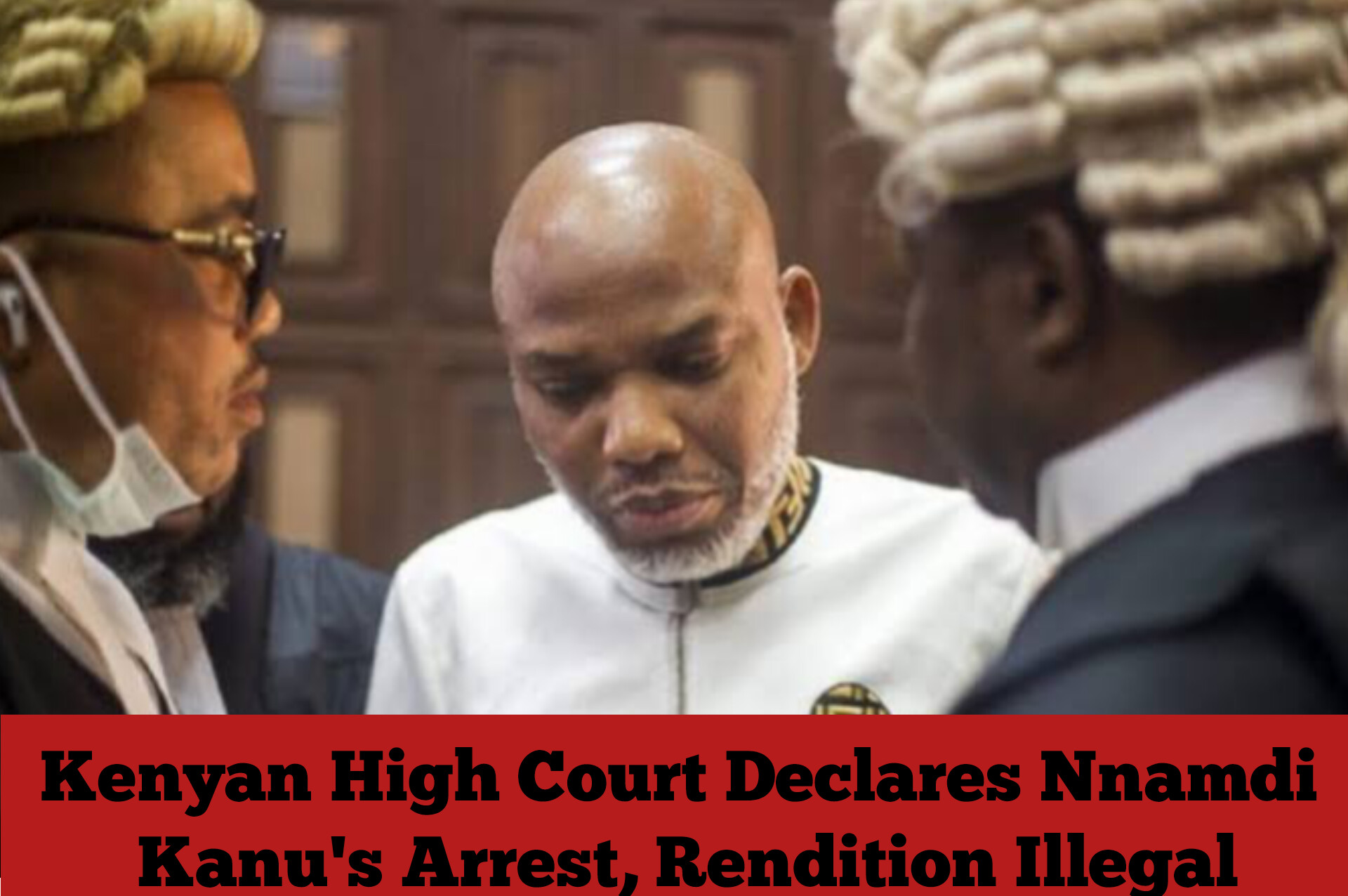In a landmark ruling, a High Court in Nairobi, Kenya, has declared the arrest, detention, and transfer of Nnamdi Kanu, leader of the Indigenous People of Biafra (IPOB), from Kenya to Nigeria in June 2021 as unlawful, unconstitutional, and illegal.
Delivering judgment on the high-profile case, Justice E. Mwita faulted the actions of both the Kenyan and Nigerian governments, ruling that the forced rendition of Kanu was a gross violation of his fundamental human rights as protected under the constitutions of both countries.
The court awarded Nnamdi Kanu 10 million Kenyan shillings in compensatory damages against the Government of Kenya for what it described as grave infringements on his rights.
Justice Mwita noted that Kanu, having lawfully entered Kenya, was entitled to the full protection of the country’s Constitution of 2010. He further stated that the Kenyan government had a constitutional obligation to safeguard his rights and freedoms while within its jurisdiction.
This ruling adds a new twist to the long-running legal battle involving the IPOB leader, who has faced multiple charges in Nigeria, including terrorism and treasonable felony.
In October 2022, the Court of Appeal in Abuja ordered Kanu’s release, striking out the charges against him on the grounds that his extradition from Kenya violated established legal procedures. However, the Nigerian Supreme Court later overturned that decision.
Delivering the apex court’s judgment, Justice Emmanuel Agim acknowledged that several illegalities had marred the government’s actions — including a military invasion of Kanu’s residence, which forced him into exile, and his subsequent rendition from Kenya. Yet, the Supreme Court ruled that these infringements did not invalidate the government’s right to prosecute him.
The recent Nairobi court verdict has reignited debate over the legality of Kanu’s arrest and transfer, as well as the wider implications for human rights, international law, and diplomatic protocols in extradition cases across Africa.


